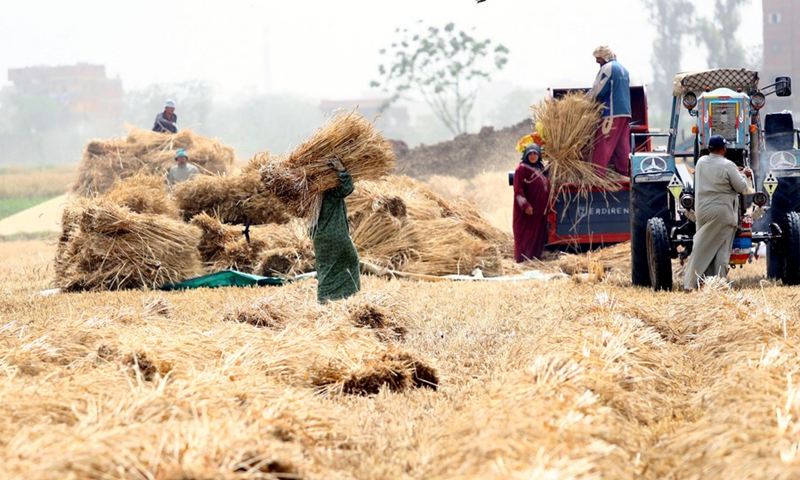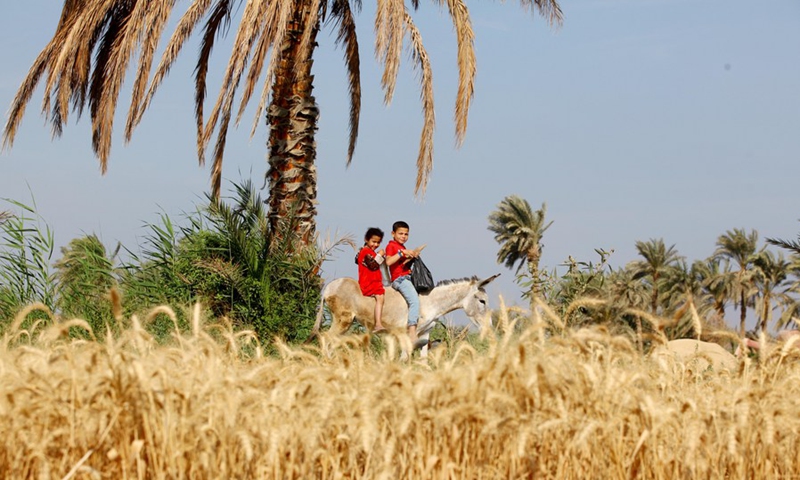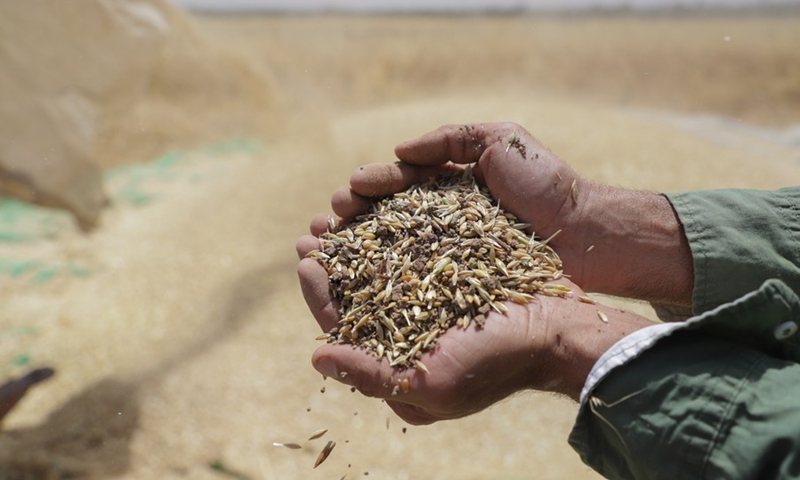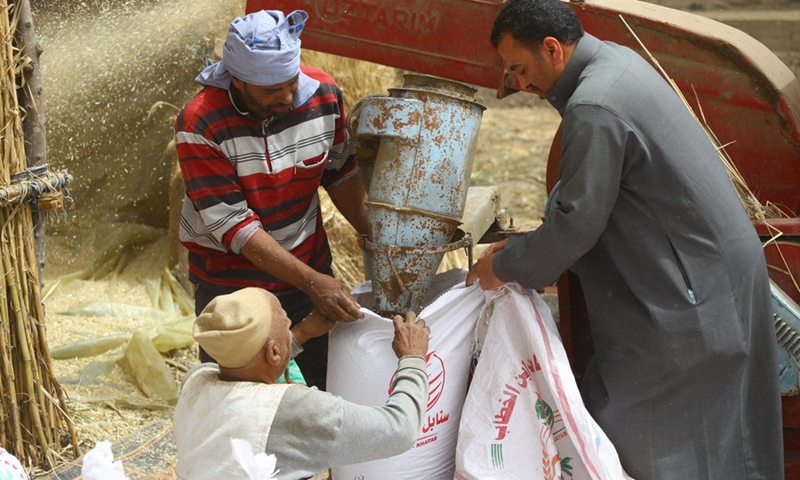
Farmers harvest wheat in a field in Monufia Province, Egypt, on April 30, 2022. Egypt has entered the season of wheat harvest.(Photo: Xinhua)

Children ride a donkey past a wheat field in Monufia Province, Egypt, on April 30, 2022. Egypt has entered the season of wheat harvest.(Photo: Xinhua)

A Palestinian farmer takes part in the annual wheat harvest in a field near the border between Gaza Strip and Israel, in Gaza City, on May 9, 2022.(Photo: Xinhua)

Farmers pack shelled wheat in Monufia Province, Egypt, on April 30, 2022. Egypt has entered the season of wheat harvest.(Photo: Xinhua)
Egypt's Agriculture Ministry said on Sunday that a total of 220,000 feddans were cultivated with wheat this year, despite some challenges topped by water scarcity.
Besides, new silos are now receiving 5.6 million tons of wheat in a way compatible with wheat storage standards to achieve self-sufficiency of the grain.
Egypt, the world's largest wheat importer, imports 80 percent of their wheat from Russia and Ukraine.
In Gaza city, some Palestinian farmers are busy collecting wheat during the annual harvest.
The Palestinian territories have been suffering from a shortage of supply and soaring local wheat and flour prices, both the main source of imports, since the outbreak of Russia-Ukraine conflict in late February.
According to the Ministry of Agriculture, the Palestinians depend entirely on the imports of wheat both in terms of food and animal feed, with 35,000 to 40,000 tons of imports annually to cover the demand of each.
